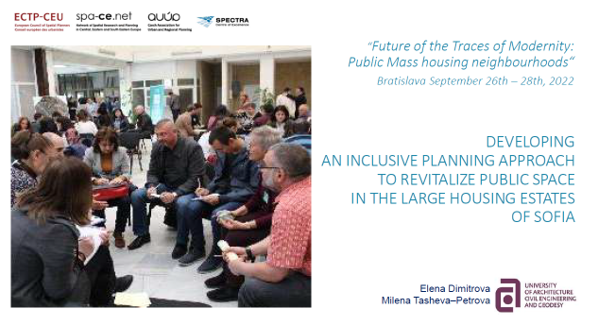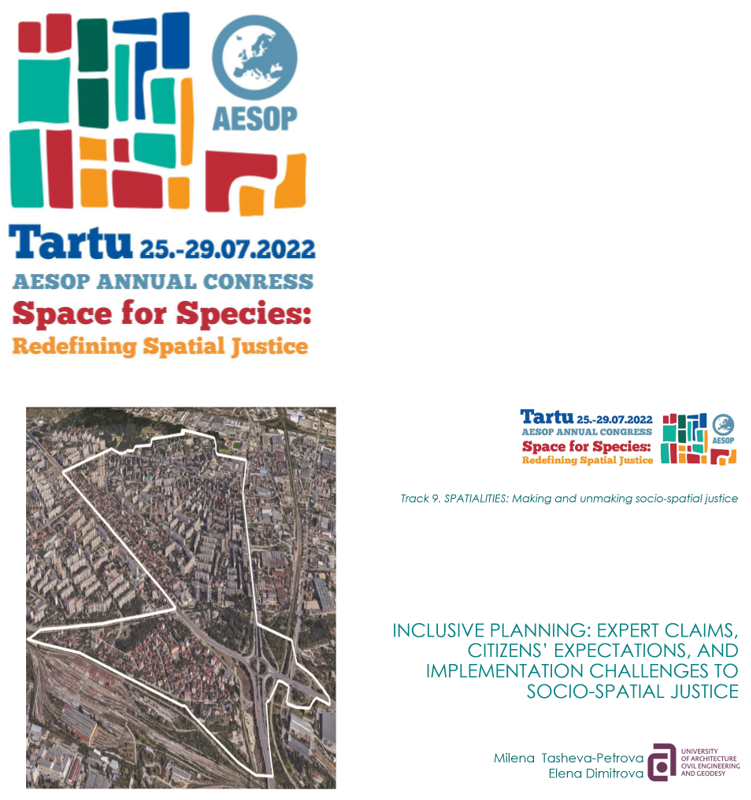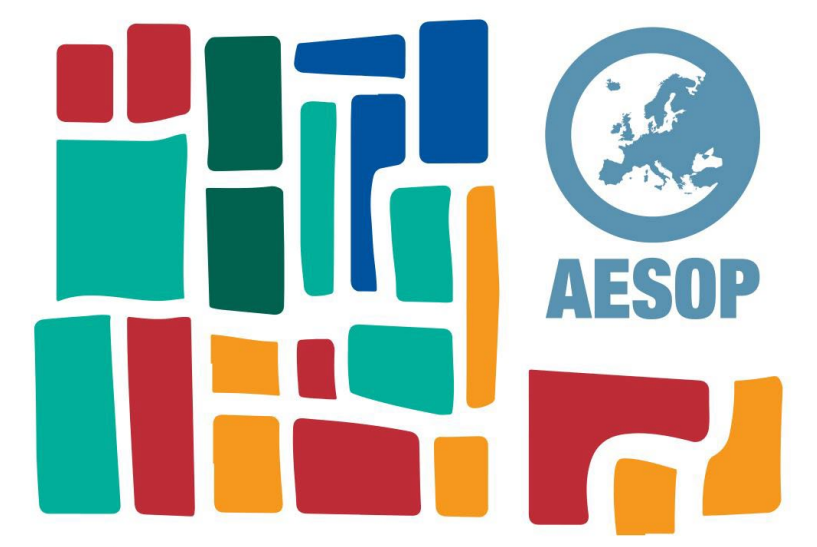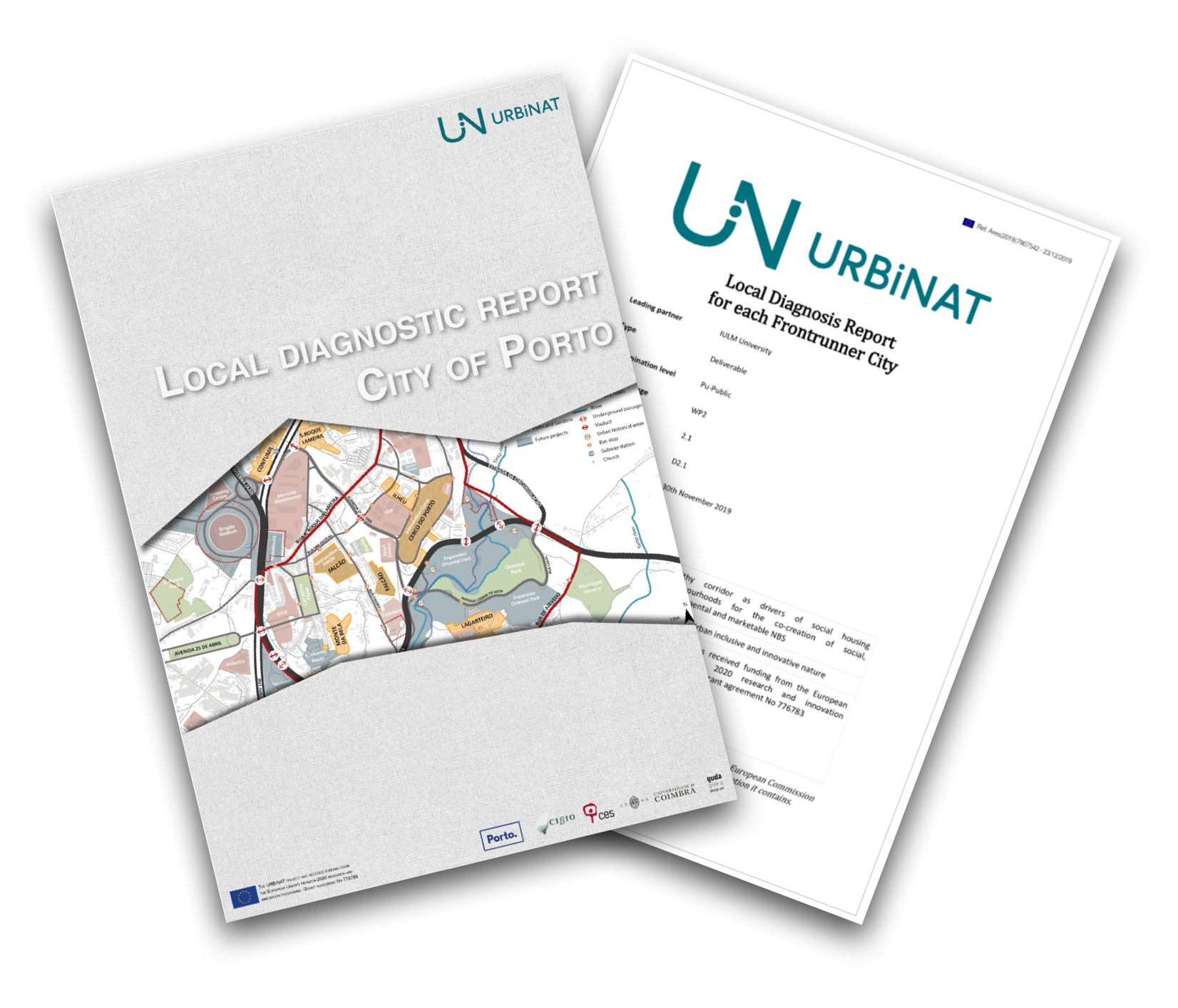Nature-Based Solutions: Addressing global societal challenges in public space renewal
Based on the understanding of the interdisciplinary dialogue and the planning of URBiNAT’s healthy corridor in Sofia’s Nadezhda district, Associate Professor Milena Tasheva-Petrova (et al.), University of Architecture, Civil Engineering and Geodesy (UACEG), presented a methodological approach for integrating NBSs in public space renewal in the post-socialist large scale housing estates during the International Jubilee Scientific Conference “80th Anniversary of UACEG” from 9-11 November 2022, in Sofia, Bulgaria.
Healthy urban planning: A search for meeting points of values and policy agendas
Assoc. Prof. Milena Tasheva-Petrova together with Assoc. Prof. Elena Dimitrova (et al.) presented a paper at the Urban Transitions 2022: Integrating urban and transport planning, environment and health for healthier urban living, from 8-10 November 2022, in Barcelona, Spain.
The paper traces the interpretation of URBiNAT project messages on health, nature, and planning in participants’ expectations and practical action. It discusses the identified key inner contradictions between declared values and hidden policy agendas in the ongoing urban process – concerning inhabitants’ lifestyle and welfare strivings, the perceived importance of natural assets for people’s health, the ownership over the commons, and the broader societal concept on governance and planning.

Developing an inclusive planning approach to revitalize public space in the large housing estates in Sofia

Assoc. Prof. Elena Dimitrova praticipated in the Future of the Traces of modernity: public mass housing neighbourhoods – Conference, a joint event of ECTP-CEU and SPA-CE.NET and AUÚP hosted by SPECTRA CE EU at STU from 26-28 September in Bratislava.
Inclusive planning: expert claims, citizens’ expectations, and implementation challenges to socio-spatial justice
Milena Tasheva-Petrova together with Elena Dimitrova presented a paper at the AESOP 2022 Congress ‘Space for Species: Redefining Spatial Justice’ that took place in Tartu, Estonia on July 25-29, 2022.
The paper adressed the co-creation process initiated URBiNAT and its development in the city of Sofia. It outlines the emerging socio-spatial conflicts and inequities and discusses the potential effectiveness of the procedures and interventions addressing them through the preliminary urban plan. Conclusions are drawn about the relevance and limitations of the developed planning approach under the peculiar socio-spatial context, the expectations raised among the variety of involved actors, and the emerging challenges to socio-spatial justice in the implementation process.






